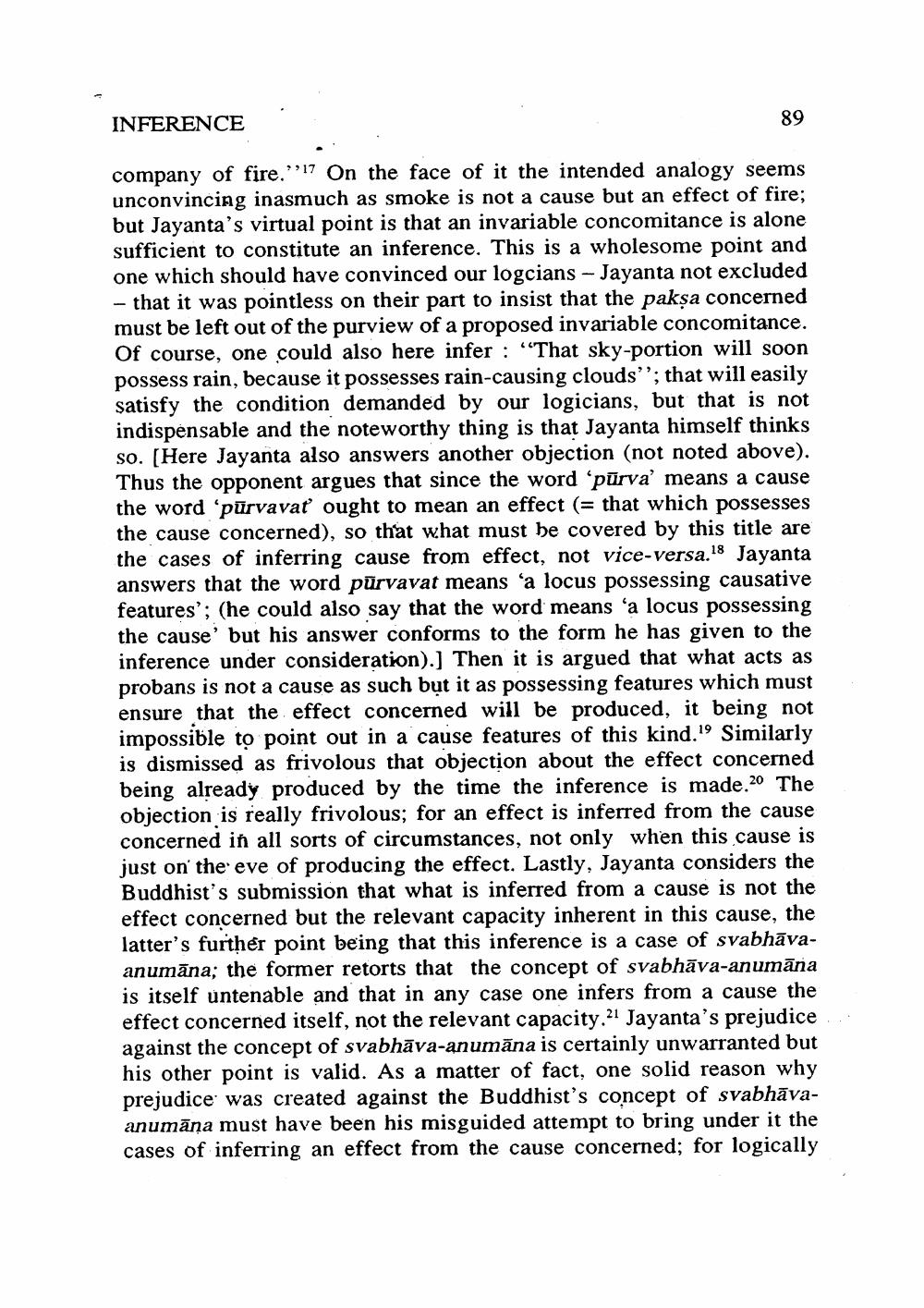________________
INFERENCE
89
company of fire." On the face of it the intended analogy seems unconvincing inasmuch as smoke is not a cause but an effect of fire; but Jayanta's virtual point is that an invariable concomitance is alone sufficient to constitute an inference. This is a wholesome point and one which should have convinced our logcians - Jayanta not excluded
18
that it was pointless on their part to insist that the paksa concerned must be left out of the purview of a proposed invariable concomitance. Of course, one could also here infer: "That sky-portion will soon possess rain, because it possesses rain-causing clouds"; that will easily satisfy the condition demanded by our logicians, but that is not indispensable and the noteworthy thing is that Jayanta himself thinks so. [Here Jayanta also answers another objection (not noted above). Thus the opponent argues that since the word 'pürva' means a cause the word 'purvavat' ought to mean an effect (= that which possesses the cause concerned), so that what must be covered by this title are the cases of inferring cause from effect, not vice-versa. Jayanta answers that the word purvavat means 'a locus possessing causative features'; (he could also say that the word means 'a locus possessing the cause' but his answer conforms to the form he has given to the inference under consideration).] Then it is argued that what acts as probans is not a cause as such but it as possessing features which must ensure that the effect concerned will be produced, it being not impossible to point out in a cause features of this kind. Similarly is dismissed as frivolous that objection about the effect concerned being already produced by the time the inference is made.20 The objection is really frivolous; for an effect is inferred from the cause concerned in all sorts of circumstances, not only when this cause is just on the eve of producing the effect. Lastly, Jayanta considers the Buddhist's submission that what is inferred from a cause is not the effect concerned but the relevant capacity inherent in this cause, the latter's further point being that this inference is a case of svabhävaanumana; the former retorts that the concept of svabhäva-anumāna is itself untenable and that in any case one infers from a cause the effect concerned itself, not the relevant capacity, Jayanta's prejudice against the concept of svabhava-anumana is certainly unwarranted but his other point is valid. As a matter of fact, one solid reason why. prejudice was created against the Buddhist's concept of svabhävaanumana must have been his misguided attempt to bring under it the cases of inferring an effect from the cause concerned; for logically




